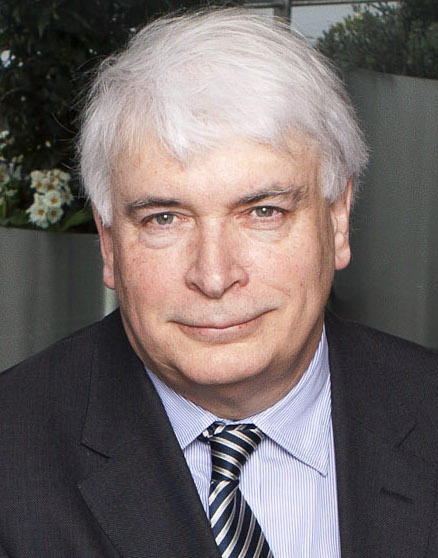FCSDublin, 2018, The Agenda
The Summit, the fifth in a series that began in 2008, takes place at a moment of heightened uncertainty for financial centres, particularly in Europe, on account of the looming Brexit on 29th March 2019. Just as it is incumbent on decisionmakers in financial services enterprises, no matter where they might operate from globally, it is the aim of the Financial Centres Summit, Dublin, 2018 , to act as a meeting place for leaders from centres and leading international financial services companies and advisers together to suggest a path forward in the light of the reality that history has presented. Our specific task will be to sketch a path that best serves the interests of the FS industry's customers wherever they might reside. FCSDublin, 2018, does not see the world in 'zero sum' terms, as mercantilists of old might have done, but in 'zero plus' terms. Accordingly, our agenda adopts a global perspective, providing balanced contributions from speakers coming, for example, from the greatest financial centre (USA), to the biggest international (UK), to emerging (EU27, perhaps, and China), to the diverse and unique series of centres, including countries such as Ireland, Canada, Qatar, Jersey, to name just some of those signed up to attend or speak at the time of writing. |  |
But, while centres and their jurisdictional financial services platforms are core to the delivery of global financial services, such as the great modern products in investment funds, or the emerging new platforms for derivatives, core issues remain at the heart of all financial services decisionmaking. Technology is moving at a decisive pace, and the coming few years will see big changes wrought across IFS (international financial services). Therefore at the heart of the Summit are the core business themes of technology, risk, marketing/sales, reflected in the structure of our agenda.
Customers should be at the heart of all financial services ventures, and providing this discipline in FCSDublin, 2018 is the parallel conference we are hosting at FCSDublin 2018, the Aviation Finance Annual Conference, 2018. AFC 2018 will bring together at FCSDublin 2018, some of the pioneering leaders in global commercial aircraft financing (the most dynamic element of an industry that accounts for 3 p.c. of global GDP) along with some of the most eminent analysts of the financials of the sector, itself an unique model in the world finance ecosystem.
A flavour of FCSDublin can be got from the following key dilemmas that panel sessions will be addressing:
In Aviation Finance, is there too much capital trying to get in? How can Chinese capital be a stabilising factor?
In Financial Regulation, can and how the destabilising potentials of fintech be designed to produce their opposite - stability and 'beta'?
In Investment Funds and Asset Management, how can the industry deliver new products in the next 10 years that will address the problems of cost, the pursuit of beta, and wider and more democratic distribution?
In Global Financial Centres, after Brexit, how can EU 27 continue to progress as a single FS and Capital market? How can UK and the rest of EEA stay included? What will be needed for this to happen?
On the wider, global scale, how can the leading financial centres and international platforms operating out of those countries be availed of by well governed businesses to produce an optimal result after Brexit, including for the City of London, and the UK?
And in FS Marketing and Product Development Strategy, how can financial services globally deliver in the context of a bigger world economy in 2025 and beyond?
Each of these themes address real dilemmas. And this approach will not just apply to the big questions, we will aim to apply it across the board. FCSDublin will not be a talking shop, it will be a workshop.
That's why we're describing our October 2nd pre Summit events in Dublin Castle as 'Master Class Workshops'. In Blockchain, for example, one of the pioneers of DLT, Professor Michael Mainelli, will moderate an afternoon session examining potential applications in areas of direct interest to IFS companies in Dublin - from aircraft leasing, derivatives and banking to speciality insurance and funds. This will be a science-based and evidence-based approach that we will aim to replicate throughout the Summit.
The programme will also feature individual case studies of success. We will explore, for example, how increasingly granular data is enabling custodians to deliver better inputs to produce superior performance for asset managers. We will examine how work at the coalface in derivatives is laying the groundwork for global markets that can develop beyond the silos of individual jurisdictions and we will be looking at analogous developments in areas such as aircraft securitisation, airline treasury and capital markets planning, insurance, pensions and big data – how it is affecting areas such as cat risk, and money market funds, ETFs, and Exchanges.
FCSDublin will bring these discussions together in a manageable format for delegates – with the one plenary session on the morning of October 3rd, then continuing in two major streams, the Financial Centres Conference, Dublin, 2018 and the Aviation Finance Conference, 2018, at FCSDublin. Both will feed into, and from, the Masterclass Workshops held on October 2nd.
The Summit luncheon, in the Hibernia Conference Centre in the Upper Castle Yard at Dublin Castle, will provide one of many opportunities for delegates to network at the Summit. The venue, one the country's most iconic, underscores the significance of Ireland's long established roots as a financial centre. It reminds us that IFS in Ireland did not start in 1987 with the establishment of its modern 'IFSC' but goes right back to the 'Magna Carta Hiberniae' of the 1200s, a charter still extant in modern Irish law.
Our mission, above all, is to ensure that it will produce real and lasting results. We look forward to sharing it with you.
Ken O'Brien
Publisher,
Finance Dublin and Aviation Finance



